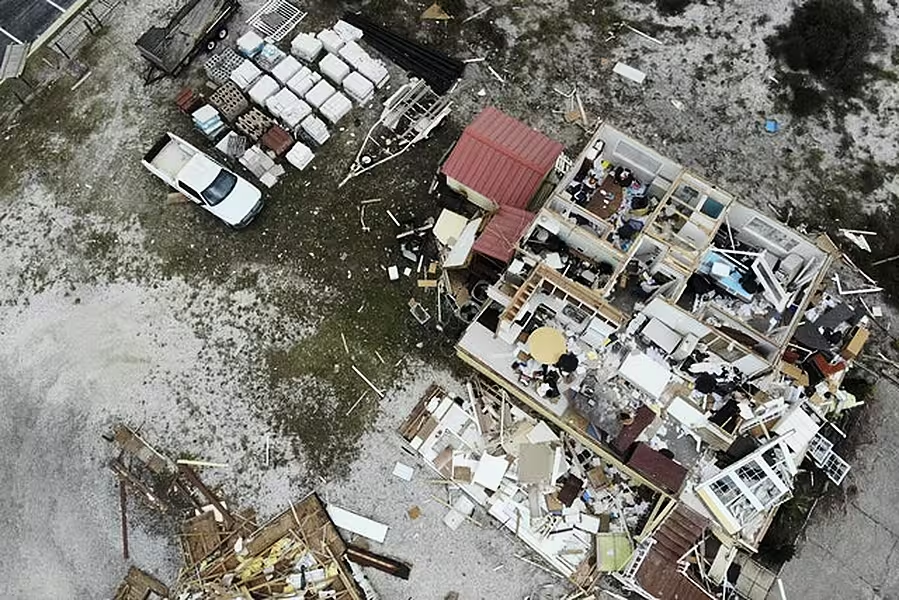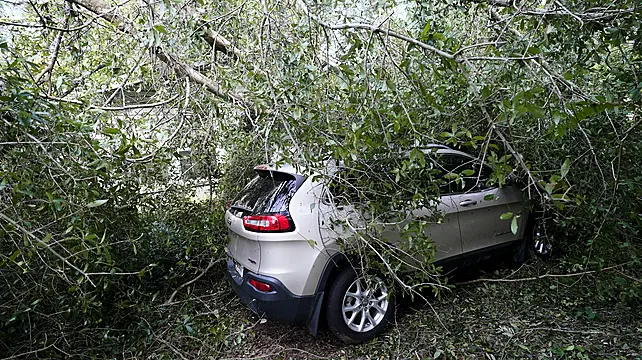Baldwin County coroner Dr Brian Pierce said the death in the Foley area and was of someone who was involved in storm clean-up.
He gave no other details on the death.
Another person in the county died on Wednesday morning as the hurricane was blowing through in an apparent drowning.
And in Florida, authorities were looking for a missing kayaker who was feared dead, Escambia County Sheriff David Morgan said.
The US Coast Guard is looking for the man who went out on the day of the storm, he said
“We’ve been telling everyone how fortunate we are about not having any deaths. We may have our first hurricane-related death as a result of it,” the sheriff said.

Meanwhile far east in the Atlantic, Subtropical Storm Alpha formed.
It is only the second time the Hurricane Centre has had to use the Greek alphabet after running out of its traditional storm names.
Tropical Storm #Wilfred Advisory 1: Wilfred Forms in the Eastern Tropical Atlantic. Get Out the Greek Alphabet For the Rest of 2020. https://t.co/VqHn0u1vgc
— National Hurricane Center (@NHC_Atlantic) September 18, 2020
Subtropical Storm #Alpha Advisory 1: Subtropical Storm Alpha Forms Near the Coast of Portugal. Expected to Be Short-Lived But Bring Winds and Rain to Portions of Portugal. https://t.co/VqHn0u1vgc
— National Hurricane Center (@NHC_Atlantic) September 18, 2020
The only time they had done this before was in the deadly 2005 hurricane season, during which Hurricane Katrina devastated New Orleans.
Alpha came just hours after Tropical Storm Wilfred formed in the eastern Atlantic, using the last of the traditional names for tropical systems.
That storm’s maximum sustained winds on Friday morning were near 40 mph.
Slight strengthening was possible during the day but weakening should start over the weekend, the U.S. National Hurricane Centre said.
Wilfred was centred about 630 miles west-southwest of the Cabo Verde Islands and was moving west-northwest near 17 mph.
The prior record for the earliest 21st named storm was Wilma on October 8 2005, according to Colorado State University hurricane researcher Phil Klotzbach.







